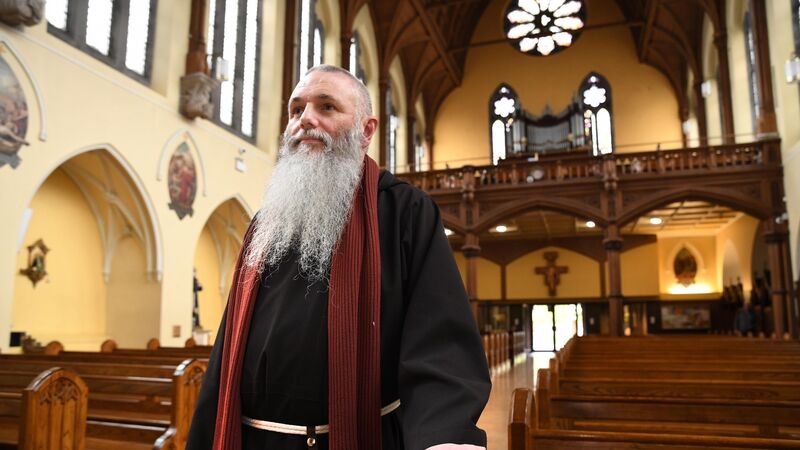'We do our very best to live as simply as possible': Brother Richard Hendrick on fame, poverty and the digital age

Br Richard Hendrick at the Franciscan Priory on Church Street, Dublin: 'We do our very best to live as simply as possible: the maxim is the least necessary, not the maximum allowed.' Pictures: Moya Nolan
He may have won the hearts and minds of the nation with his recent appearance, but Capuchin Franciscan friar Brother Richard Hendrick is taking his new-found fame with measured humility.
“As far as I’m aware, people seemed happy that the conversation had taken place,” he says.











